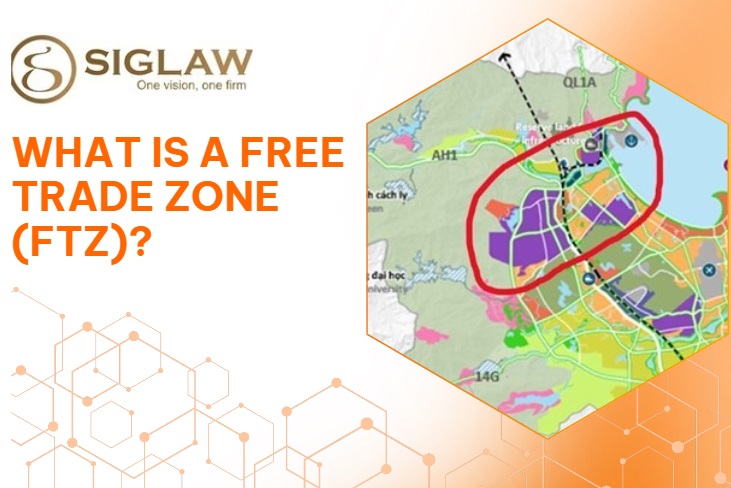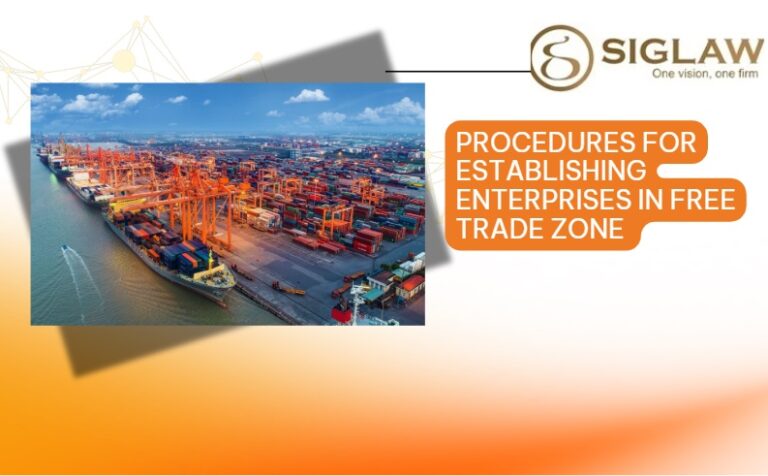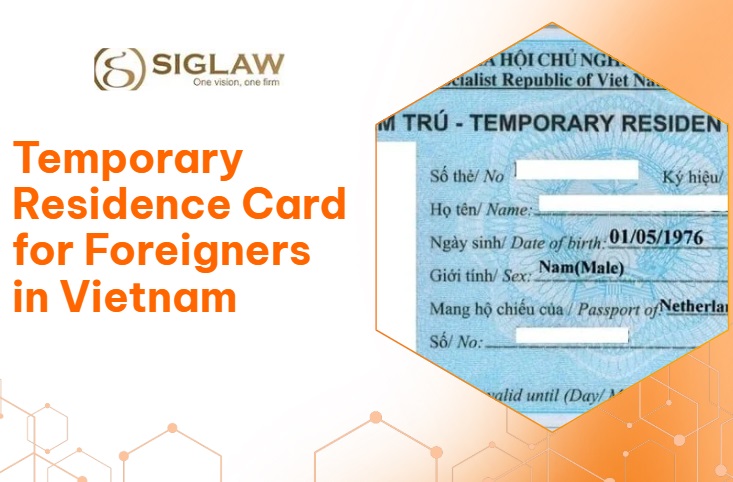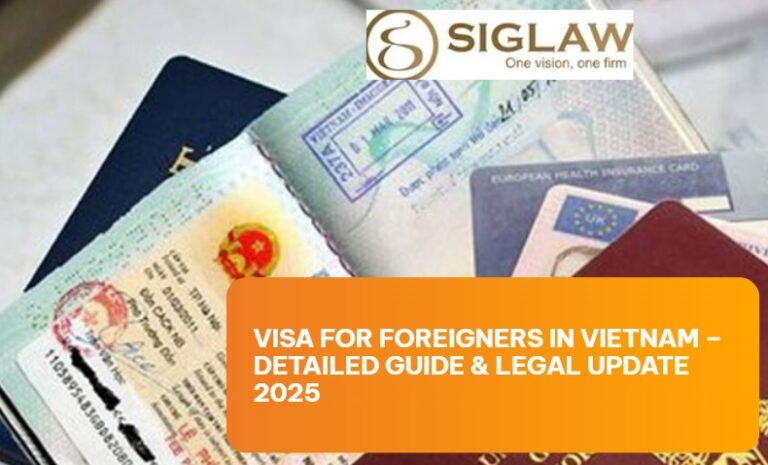What is a commercial arbitrator? What are some differences with a court?
In the current context, the market economy is constantly changing and the number of newly established companies is increasing. Consequently, business transactions are also continuously evolving. On the other hand, commercial disputes in business transactions are unavoidable and are increasing in complexity.
In addition to traditional dispute resolution methods such as courts, commercial arbitration has recently become a preferred method of dispute resolution for Vietnamese businesses. This article by Siglaw Law Firm will provide readers with an overview of commercial arbitration and the reasons why businesses should choose commercial arbitration when resolving commercial disputes.
What is commercial arbitration?
Definition of commercial arbitration
In Vietnam, as stipulated in Article 3(1) of the 2010 Law on Commercial Arbitration, “Commercial arbitration is a method of dispute resolution agreed upon by the parties and conducted in accordance with the provisions of the Law on Commercial Arbitration.”
Therefore, the definition of commercial arbitration can be generally described as a method of dispute resolution agreed upon by the parties. The disputes must fall into one of the following three categories:
- Disputes arising between parties from commercial activities.
- Disputes arising between parties, at least one of which is engaged in commercial activities.
- Other disputes between parties that are resolved by arbitration under the law.
Disputes will be resolved by arbitration if the parties agree to it. In this regard, an arbitration agreement is an agreement between the parties to resolve disputes by arbitration that may arise or have already arisen. This agreement may be made before or after the dispute arises. This provision creates maximum favorable conditions for the parties to protect their rights and interests in commercial activities.
Characteristics of commercial arbitration
Arbitration is non-state in nature:
Arbitration is a non-governmental organization (a professional social organization) that operates under the law and the rules of arbitration. Arbitration is a democratic mechanism in resolving commercial disputes; it not only contributes to creating a democratic and free life in jurisprudence, but also shares the responsibility with the state in eliminating social conflicts, specifically in resolving commercial disputes.
The mechanism for resolving disputes through arbitration is a combination of two elements: agreement and arbitration:
Specifically, the agreement serves as a prerequisite for the arbitration award and the arbitration award cannot escape the agreed-upon elements. Therefore, in principle, the jurisdiction of arbitration is not limited by law; the parties can choose, at any time, any arbitration case or arbitration rules in the world to resolve disputes. However, once agreed upon, the arbitration award is binding and the parties are required to comply with it.
The parties have the right to self-determination:
The arbitration method ensures the parties’ right to self-determination to a greater extent than the court method, as evidenced by the fact that the parties to the arbitration proceedings have the right to choose arbitrators, the place of dispute resolution, litigation rules, and the laws applicable to the dispute.
The arbitration award is final and binding:
The arbitration award is of binding force and cannot be appealed before any agency or organization (except in very special cases related to the annulment of the arbitration award). This characteristic helps arbitration to have favorable conditions for resolving commercial disputes quickly and conclusively.
Support from the Court:
The laws of most countries, including Vietnam, provide mechanisms for support from the court for the activities of arbitrators. Through procedures for recognition and enforcement, the court ensures the enforcement of the decisions of arbitrators when one or more parties refuse to comply voluntarily (in Vietnam, the decisions of Vietnamese arbitrators are naturally enforceable). In addition, the court can also support arbitrators in other matters, such as decisions to apply temporary emergency measures, seize assets, preserve evidence, or prohibit or compel certain specific acts.
Differences between Arbitration and Court Proceedings:
Arbitration and court proceedings are both methods of resolving commercial disputes, with both playing a neutral role with respect to the disputing parties. The dispute resolution activities of the court and arbitrators have similarities in that they are both based on law and the contracts of the parties involved in the dispute, review the facts of the case, and render independent decisions that are enforced. Because the decisions are binding and enforceable, the litigation procedures of the court and arbitrators are stringent and must comply with legal regulations. The litigation procedures of the court and arbitrators are based on common principles such as respecting the right to self-determination of the parties and ensuring the independence of the decision-maker. However, because they are independent methods of dispute resolution, there are some fundamental differences between the litigation procedures of the court and arbitrators, including: expertise, flexibility and informality, confidentiality, appeal, enforcement, cost, and time.
| CRITERIA | COURT | ARBITRATION |
| Legal Nature | The court is a state agency that is part of the judicial system. During the litigation process, the court acts on behalf of the state to examine and handle legal violations in order to maintain public order and protect the legitimate rights and interests of the parties. | Arbitration has a strong non-governmental nature. Arbitration centers are not established by the state, but by arbitrators who seek permission from the state to establish them. Arbitration centers are professional social organizations and not part of the state apparatus. In arbitration proceedings, the arbitrators are appointed by the parties themselves and are not state agencies. |
| Jurisdiction | Jurisdiction by case: Courts have a broader jurisdiction than arbitration. The court has the jurisdiction to resolve almost all types of disputes arising in life, such as commercial business, inheritance, family marriage, non-contractual liability, etc. The court can also resolve civil matters that are not disputes.
Jurisdiction by territory: Not every business dispute can be resolved by the court with jurisdiction. A lawsuit can only be resolved by a court with jurisdiction when it is transferred to the court with the appropriate jurisdiction to resolve the case. |
Jurisdiction by case: Arbitration only has jurisdiction to resolve commercial disputes.
Jurisdiction by territory: In arbitration proceedings, jurisdictional issues regarding territory are not usually raised. The disputing parties have the right to choose any arbitration center they wish to resolve their dispute, based on their preference and trust. Once the parties agree on which arbitration center will handle the dispute, that center has the jurisdiction to resolve the dispute. In terms of territorial jurisdiction, arbitration is more flexible than the courts. |
| Legal proceedings | Any party that suffers damages due to the other party’s violation can request the court to resolve the dispute (unless the parties have agreed to arbitration). | Regarding arbitration proceedings, when a dispute arises, the disputing parties can only bring the dispute to an arbitration center for resolution if they have agreed to do so beforehand. This means that the arbitration agreement is a condition for determining the right to initiate proceedings for the parties involved. |
| Public nature of litigation proceedings | Most court hearings are conducted in public, and the judgments are usually widely publicized for the benefit of the public. This can make it difficult to protect confidential information. | All details and outcomes are not disclosed to the public without the consent of the parties involved. The law does not require arbitration hearings to be conducted in public. In addition, the decision of the arbitrator and the reasons for the decision will not be made public unless requested by the parties involved. |
| Flexibility in litigation procedures | Litigation in court is bound by strict procedural rules, and parties must comply with formal requirements that can be highly ceremonial. The applicable law is often considered inflexible and non-negotiable. | Arbitration proceedings are a flexible and adaptable procedure. The procedures used in arbitration are simple, convenient, and allow for the parties’ business interests to be safeguarded. For example, in arbitration proceedings, the parties can choose the arbitration organization, select arbitrators they trust, and choose a convenient location for the arbitration. Additionally, the parties can agree on procedural rules to be used in the arbitration. |
Why choose commercial arbitration to resolve commercial disputes?
Arbitration emphasizes the parties’ agreement:
The authority of the arbitration panel is established based on the voluntary agreement of the parties, rather than the power of the state. This means that the parties have greater control over the process and can tailor it to their specific needs.
- Flexibility in arbitration procedures;
- Confidentiality in arbitration;
- Efficiency and cost-effectiveness;
In commercial arbitration, parties have the right to agree on the place of dispute resolution, which can be within or outside the territory of Vietnam. This allows the parties to be proactive and save time and effort in meeting the essential requirements of the arbitration panel.
The right to choose arbitrators to resolve disputes allows parties to select experts with specialized knowledge and practical experience in the relevant field of dispute (such as insurance disputes, stock and securities disputes, construction disputes, etc.), who are reputable in the industry to become arbitrators to resolve disputes between the parties.
This helps to ensure that dispute resolution is carried out quickly and accurately on the principle of voluntary, freely agreed upon by the parties in the dispute.
The ability to choose the applicable law and language for dispute resolution makes commercial arbitration more popular in international disputes.
Resolving disputes through commercial arbitration is that it ensures confidentiality.
Unlike the principle of public hearings in court litigation, commercial arbitration respects the confidentiality of information throughout the process, and the arbitration sessions are conducted in private with only the participation of those who are authorized to receive the decision. When the content of the dispute and the identity of the parties are kept confidential, it will meet the need for trust in commercial relationships and is particularly important in competitive conditions (especially for companies listed on the stock exchange).
The decision of a commercial arbitrator is finality
- The decision of a commercial arbitrator is characterized by finality and cannot be appealed or challenged, unlike a court judgment or decision. I
- In the case of an international commercial contract, it is often difficult to obtain international recognition for a national court judgment. Since the jurisdiction of a court is usually limited to a particular country, a judgment of a national court must generally be recognized in another country through a bilateral agreement and subject to strict rules. On the other hand, an arbitral award can be recognized internationally through a series of international conventions, particularly the 1958 New York Convention on the Recognition and Enforcement of Foreign Arbitral Awards (which has 150 member countries and territories).
If you are facing difficulties in a commercial arbitration dispute, please contact us. Siglaw Law Firm is a professional consulting firm established in Vietnam with a team of experienced lawyers, skilled arbitrators, and experts with over 2000 loyal customers demonstrating our reputation in the domestic and international business market. With practical experience, Siglaw will help businesses have an overall, multidimensional and comprehensive view of all the issues within your business, analyze risks and advantages of the business according to Vietnamese law, thereby providing the most optimal and appropriate solutions for each specific business.
In addition, Siglaw Law Firm, with strengths in foreign investment consulting services, survey and investment project consulting, corporate law consulting, corporate restructuring, M&A, tax management law, intellectual property law, contract drafting and negotiation, and business sectors with conditional operations, sub-licenses, medical equipment and food licenses… We are confident in providing customers with optimal and effective legal services.
Phone: (+84) 961 366 238
Email:
- vphn@siglaw.com.vn
- vphcm@siglaw.com.vn
Headquarters: No.44/A32-NV13, Gleximco A, Le Trong Tan Street, Tay Mo Ward, Ha Noi.
Southern branch: No.103 – 105 Nguyen Dinh Chieu Str., Xuan Hoa Ward, Ho Chi Minh.
Central branch: VIFC DN – ICT Building Software Park No. 2, Nhu Nguyet Street, Hai Chau Ward, Da Nang City
Facebook: https://www.facebook.com/hangluatSiglaw









